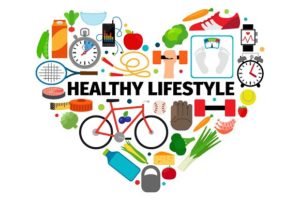Who can deny the fact that living a healthy lifestyle helps improve your overall health?
A good way to live a healthy lifestyle is to include physical exercise into your daily routine. Anyone suffering from a chronic medical condition may find it increasingly difficult to “meet your step goal,” or to incorporate physical activity into their already hectic schedule. Many people with chronic kidney disease feel that physical exercise may be a health risk. However, we now know that patients that follow a physical exercise program have a better chance of being healthy, and feeling more energetic. As you exercise, you will find it easier to get around and take care of your daily tasks. Along with an increase in energy, those who continually exercise will have improved muscle function, more strength, lowered cholesterol and triglycerides, lower body weight, and better quality sleep.
Before beginning any exercise program, it is important to have a discussion with your doctor about the risks involved. The importance of this doctor-patient conversation is great in patients with chronic medical conditions like CKD. While developing your own exercise program, you should look at four different factors: type of exercise, duration of exercise, the frequency of workouts, and the difficulty of the workout. Cardio is a great choice for a type of exercise, as biking, swimming, skiing, etc. can help with muscular endurance, and is great for your heart. A conservative weight lifting plan can be an option as well, including high repetition-low weight sets. It is important to avoid heavy lifting until you have properly trained and have had a discussion with your healthcare professional. The length of your workout should be around 30 minutes per session. Can’t get to 30 minutes? Work towards it! On the other hand, if you feel like you can swim those extra ten laps, feel free! It is important to manage your time exercising, and it is important to stop exercising before you begin to feel uncomfortable. As over-exercising yourself is a serious health risk. The best way to determine if you are working too hard is to analyze your breathing. If you cannot hold a conversation with someone while you work out, you are working too hard! Also, an hour after your workout you should feel completely normal, if you feel a bit woozy or very exhausted you have worked too hard. Keep the intensity to a “comfortable push” you don’t need to be a marathon runner or Olympic weightlifter overnight! The most important advice you can get is to start slow and gradually increase your pace/weight. Give your body some time to adjust to the increased activity/resistance. Stop exercising immediately if you feel very tired, chest pains, nauseous, cramps, dizzy/light-headed, or are short of breath.
Workout routine without any major changes
Try to incorporate your workout routine without any major changes in your schedule. Let it become an event on a normal day. If you live in a very hot, or cold area try to schedule your workout in a time of day where the climate is comfortable. Mornings and evenings are usually the best time for working out. There are times where you shouldn’t exercise, like less than an hour before bedtime, or less than an hour after a large meal. By creating a relatively constant workout regimen, you can increase your overall wellness, and feel better, while keeping off some weight, and reducing the stress that your body undergoes throughout the day.

